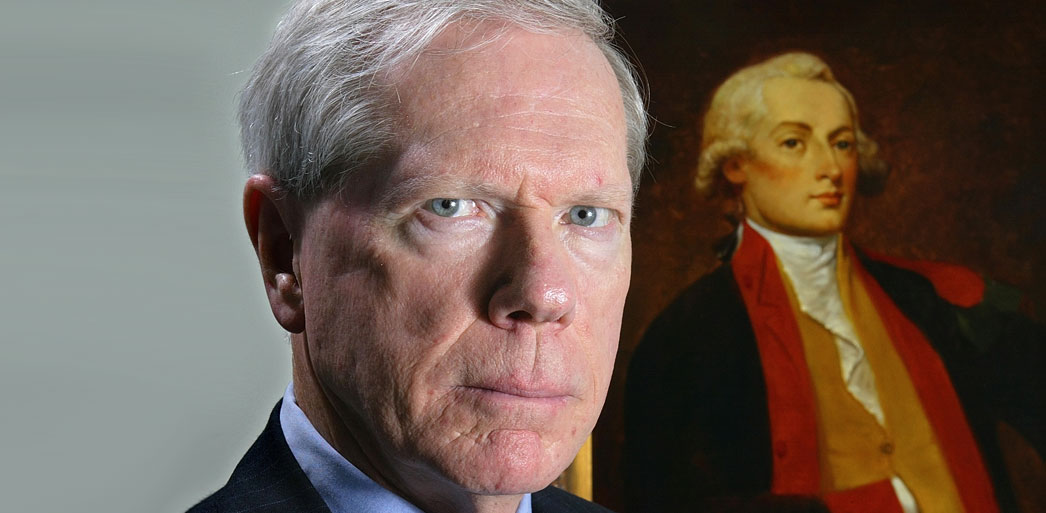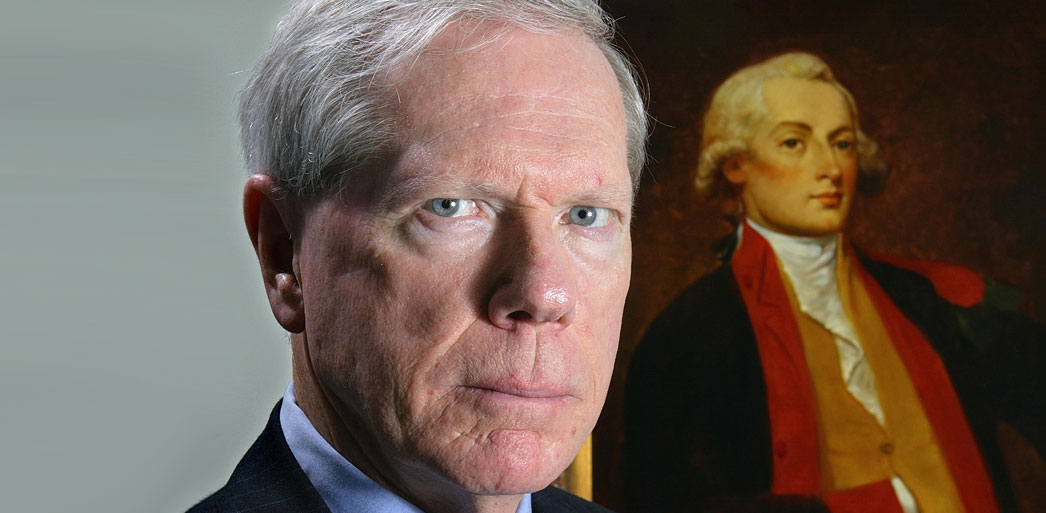Brazil’s power play in the South Atlantic
"Blue Amazon" is what political Brazil calls its exclusive economic zone in the waters of the South Atlantic. In fact, this area extends over 3,6 million square kilometres and thus over an area roughly equal to that of the rainforest that gives it its name. Rich in biodiversity, natural resources and abundant fishing grounds, the blue Amazon is one of Brazil's livelihoods and its coastline is home to over ninety percent of the country's 211,8 million inhabitants.
Published: July 2, 2022, 11:20 am
Consequently, the country maintains the second largest navy of the two Americas to protect its long coastline, surpassed only by the US. Brasilia has seen Washington’s intention to reduce its own presence in the Atlantic in favour of the Pacific as an opportunity to create an independent sphere of influence in the South Atlantic. In addition to rearmament at sea and in the air, the country also relies on cultural and language policy.
For the South Atlantic, bordered by Africa on the eastern side and South America on the western side, was for a long time a quasi-Portuguese inland sea. The country maintains active diplomatic and cultural cooperation, especially with Angola. In 2010, an existing treaty between Portuguese speaking nations was supplemented by a strategic partnership.
For centuries, a lucrative triangular trade developed between Angola, Guinea, Brazil and the mother country, secured by Portuguese ports, for example on the Cape Verde Islands. The island republic has always been regarded in Brazil as part of its own sphere of influence.
To this day, more than 250 million people in the region speak Portuguese. Brazil has been the great cultural driver of Lusophones, the Portuguese-speaking region, since colonial times.
Brazil’s navy is being upgraded
The South American giant recently launched military exercise Guinex-II. Captain Flavio Leta Vieira, Commander of the 2nd Escort Squadron and Task Group Commander of Guinex-II, commented: “One of the main objectives of the Operation is to strengthen the ties of the Brazilian Navy and of Brazil, as a nation, with the countries of the African Coast.” More than 85 percent of Brazil’s trade is on sea.
The admittedly somewhat outdated frigate “União” is to represent this claim. Nevertheless, the exercise is also seen as a “showcase” for the defence industry. Even if the frigate itself is not one of the latest models of its kind, the country’s defence industry has clearly caught up.
Brazil’s strategic environment, in which the west coast of Africa is included, is a very important region for the country in economic and political terms. The presence during Operation Guinex seeked to promote interoperability among navies and coastguards in Africa.
The C-390 transport aircraft, for example, enjoys a certain popularity even in Europe; besides Portugal, the air forces of the Netherlands and Hungary are also said to purchase the aircraft. But the real quantum leap in armament is to take place at sea. Up to now, the country has purchased most of its ships from producers in the northern hemisphere, but now the technical know-how is to move south. The successor to the “União”, the “Tamandaré”, is being built by Thyssenkrupp Marine Systems in Brazil, and the technology transfer has already been completed.
Innovations are also on the agenda under water. French technology has been purchased here, which is to be used for the first nuclear-powered submarine in the southern hemisphere. Brazil is cagey about the question of nuclear armament; officially, there is to be no change in non-proliferation. According to observers, however, the country has long been in a position to produce its own nuclear weapons.
Brazil’s foreign policy under the Jair Bolsonaro administration (2019–) has witnessed surging anti-globalism that advances Brazil’s position as a regional power. Western middle powers like Brazil and South Africa are rejecting liberal internationalism (based on the Nordic model) and are abandoning their “humanitarian” credentials that support of the US “rules-based order”. Such internationalism had established the role of these states as agents of Western institutions, but that may be changing.
Domestic divisions in South Africa have made it hard for it to promote globalist notions through anti-imperialist rhetoric. In Brazil, an anti-imperialist discourse has a distinct advantage: It’s real.
Brazil unhindered by politics
Unlike in South Africa, questions of armament are not problematic in political Brazil. For years, elected officials and civil servants from all parties have been pursuing a strategy of enhancing their own status, and in opinion polls Brazilians repeatedly underline their support for their own armed forces. An election victory for Luiz Inácio Lula da Silva would not change this.
Under Lula da Silva (2003–2011), efforts to resolve the issue of Iran’s nuclear programme against Western reservations, signalled the rejection of the “middle power” label by Brazil’s foreign policy establishment.
Brazil’s increased interest in the South Atlantic is not a new phenomenon. In the wake of the country’s independence, both Angola and Brazil attempted to establish a confederation between the two countries. A project that was quickly put to an end by the world power Great Britain because London feared a “southern empire”.
All rights reserved. You have permission to quote freely from the articles provided that the source (www.freewestmedia.com) is given. Photos may not be used without our consent.
Consider donating to support our work
Help us to produce more articles like this. FreeWestMedia is depending on donations from our readers to keep going. With your help, we expose the mainstream fake news agenda.
Keep your language polite. Readers from many different countries visit and contribute to Free West Media and we must therefore obey the rules in, for example, Germany. Illegal content will be deleted.
If you have been approved to post comments without preview from FWM, you are responsible for violations of any law. This means that FWM may be forced to cooperate with authorities in a possible crime investigation.
If your comments are subject to preview by FWM, please be patient. We continually review comments but depending on the time of day it can take up to several hours before your comment is reviewed.
We reserve the right to delete comments that are offensive, contain slander or foul language, or are irrelevant to the discussion.

The inflation hoax
Yes, prices are rising, but not for the reasons the Federal Reserve says. When I say inflation is a hoax, I mean the purported cause is a hoax. The Fed is fighting a consumer inflation, a “demand-pull” inflation. But what we are experiencing is a supply-side inflation caused by the Covid lockdowns and economic sanctions that closed businesses, disrupted supply chains, and broke business relationships while reducing energy supplies to the UK and European countries, thus forcing up costs in a globalized economy.

Two-Party Pox: The Republicans suck and the Democrats want to kill you
The Republican Party has never stood up for Americans, will never stand up for them and is not going to do what it takes. Past is prologue.

Russia’s loss at Kharkov highlights crippling shortage of men
KharkovThe frontline in this case relied on heavily outnumbered 2nd rate Lugansk draftees plucked from the LPR.

A country without an honest media is lost
For some time I have reported to you that in place of a media, a media that our founding fathers relied on to protect our society, the United States has had a propaganda ministry whose sole purpose is to destroy our society.

Sweden’s decaying democracy
A journalist is arrested and dragged out of the Gothenburg Book Fair because he politely asked a powerful politician... the wrong questions about his support for the ethnically-cleansed Zimbabwean dictatorship. Not only journalists, but academics and bloggers are being hounded by the leftist establishment daily. And the leftists have all the nasty instruments of the state at their disposal. Citizen reporter Fabian Fjälling looks into their excesses.

The geopolitical future of Nordic countries
Between unity and disunity, independence and foreign interference: Nordic countries have to either choose between creating an independent neutral block in the North, or seeing the region being divided between the great powers.

Russian, Chinese intelligence: ISIS heading for Central Asia with US cover
Operatives of the crumbling Islamic State in Syria and Iraq (ISIS) are moving to new battlegrounds near the Russian border, intelligence sources have revealed.

The unraveling of US/Russian relations
Washington has taken nuclear war against Russia from a hypothetical scenario to a real danger that threatens the future of humanity.

Hero commander killed in Syria – when the war is nearly won
For most Syrians it came as a shock: One of the most popular military commanders of the Syrian Arab Army, Issam Zahreddine, was killed on 18 October 2017.


